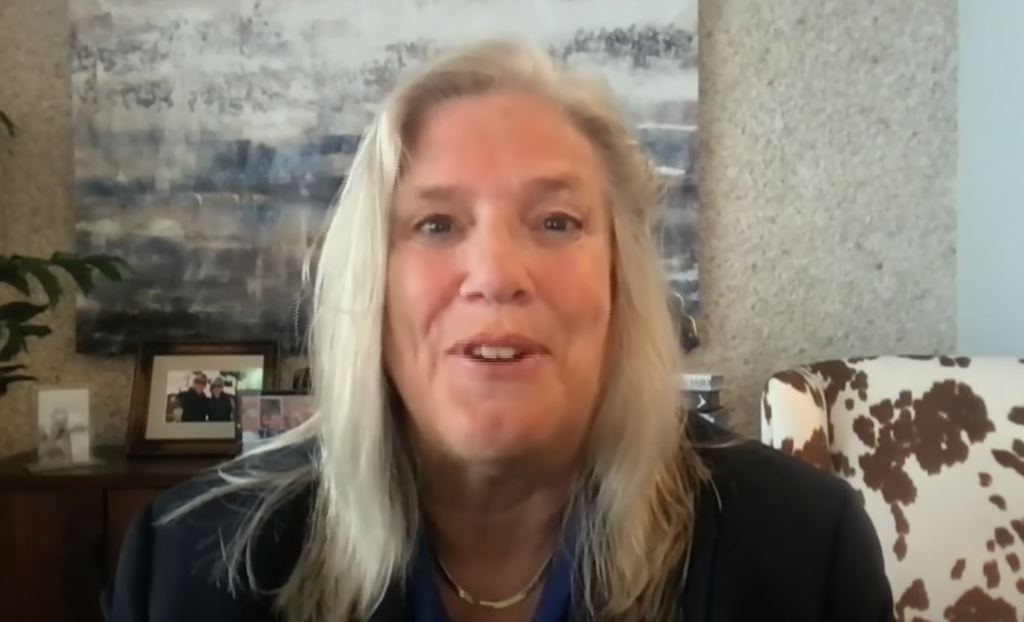The question, “Is Sue Gordon sick?” has been making the rounds on social media and in search threads in recent days. Due in large part to an honest misunderstanding, what at first seemed to be a lone curiosity developed into a full-fledged subject of conjecture, one that illustrates the potential and risk of online information dissemination.
Susan M. Gordon, the Sue Gordon in question, is a highly esteemed national security professional and a former senior intelligence official. She has over thirty years of experience working for the United States in various intelligence agencies, including as the Principal Deputy Director of National Intelligence during the Trump administration. Many people praised her leadership for being very clear, especially during politically charged changes. However, as rumors gained traction, many people started to mistake her for someone else.
Sue Gordon – Personal and Professional Details
| Full Name | Susan M. Gordon |
|---|---|
| Born | Knoxville, Tennessee, USA |
| Education | Duke University (B.S., Zoology, 1980) |
| Career | Over 30 years in U.S. Intelligence |
| Notable Roles | Principal Deputy Director of National Intelligence (2017–2019) |
| Other Positions | Deputy Director, National Geospatial-Intelligence Agency; Director, CIA Information Operations Center |
| Current Work | National security advisor, consultant to Microsoft, board roles at MITRE, CACI, and NSSA |
| Health Status | No public evidence of illness as of 2025 |
| Public Appearance | “Face the Nation” Interview, November 2024 |
| Online Confusion | Mistaken for a cancer survivor in Texas |
This misunderstanding stems from a heartwarming and widely circulated medical narrative about another woman, Sue Gordon, who lived in Pearland, Texas, in January 2024. At UTHealth Houston, that person fought oral cancer and had a difficult reconstructive procedure. Her recuperation required cutting-edge treatments like a fibula bone transplant and personalized dental implants; the narrative was both incredibly successful at demonstrating medical advancement and incredibly poignant in its emotional resonance. Unfortunately, a lot of readers and social media users mistakenly thought the patient was the national security veteran because of the similar names.
Algorithms connected these two unrelated women by using basic similarities, which sparked a wave of inquiries about the former intelligence chief’s health. However, there is currently no confirmed evidence of Susan M. Gordon’s illness. She actually continues to be very active in her field, mentoring the upcoming generation of strategic thinkers, participating in advisory boards, and making insightful appearances in national broadcasts.
Her continued involvement was demonstrated in November 2024 when she appeared on Face the Nation. She handled difficult subjects pertaining to political allegiance, intelligence, and transitional procedures with composure and purpose throughout the interview. As usual, her voice was remarkably calm, clear, and incredibly convincing. No outward signs of any health issues were present. Her contributions were akin to a master class in national service, if anything.
The question “Is Sue Gordon sick?” is ironic because it mirrors the very disinformation ecosystems that she has dedicated her life to observing and dismantling. She has been especially outspoken about the dangers of misrepresenting information and the significance of confirming sources—messages that now reverberate through this circumstance with remarkable clarity. In many respects, her current lack of attention isn’t a sign of illness; rather, it’s in line with her lifelong emphasis on impact rather than visibility.
Gordon continues to drive innovation and impact policy through advisory positions and strategic partnerships at institutions such as the National Security Space Association and MITRE. In light of new dangers like cyberwarfare and space security, her voice has remained particularly important. She has become a crucial mentor in forming a more resilient future for national intelligence by utilizing her unparalleled institutional knowledge.
Public personalities spoke out more about health issues during the pandemic, bringing personal accounts into public forums. Although frequently advantageous, this openness has also led to confusion and misidentification. When two people have the same name and algorithms are unable to tell them apart, the situation with “Is Sue Gordon sick?” is strikingly similar to other digital misfires. However, intelligence veterans like Gordon are typically not as closely watched as celebrities who are in the public eye all the time. For onlookers, that is what made this mistake especially plausible.
Sue Gordon continues to be a trailblazer for women in national security leadership. Her choice to be open and honest while serving, particularly during a politically unstable administration, established a standard for intelligence professionals in the future. She has been especially creative in guiding new women into the field and promoting honesty and openness in intelligence reporting.
It’s also important to consider how she handled leaving the government. Many people both inside and outside the intelligence community saw her resignation as a loss to national stability when she left in 2019 due to changing political circumstances. Her remarks are still cited as standards for professional objectivity in think-tank circles.
Gordon’s composure under duress and readiness to speak truth to power provide early-career analysts with an ethos that is remarkably similar to that of other high-integrity individuals such as Fiona Hill and Avril Haines. They each reflect a generation of intelligence chieftains whose impact endures long after they leave their positions.

